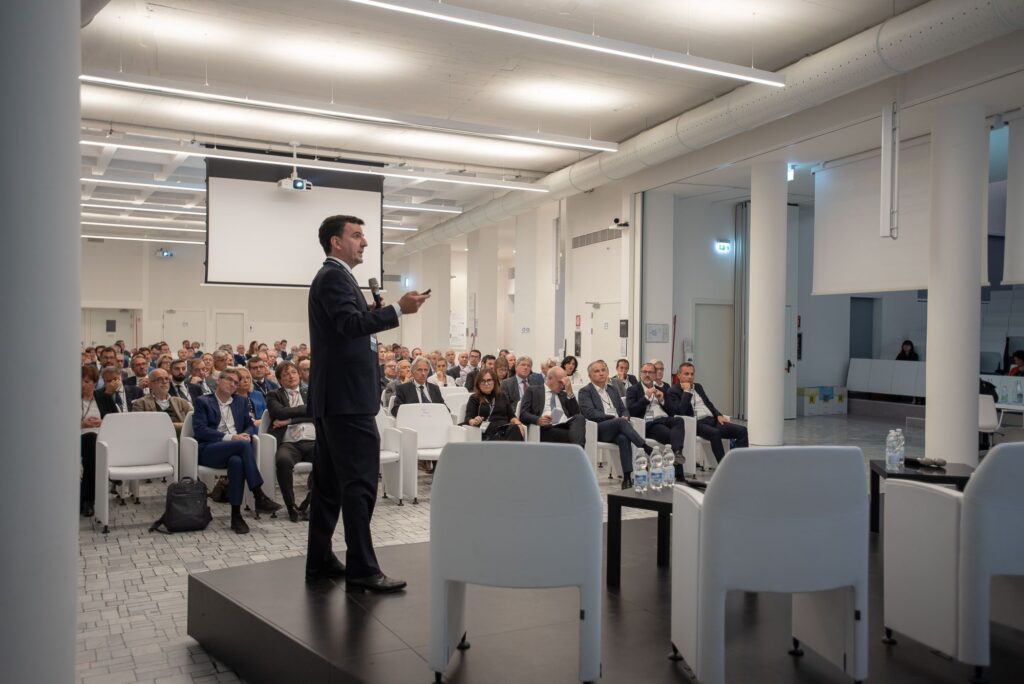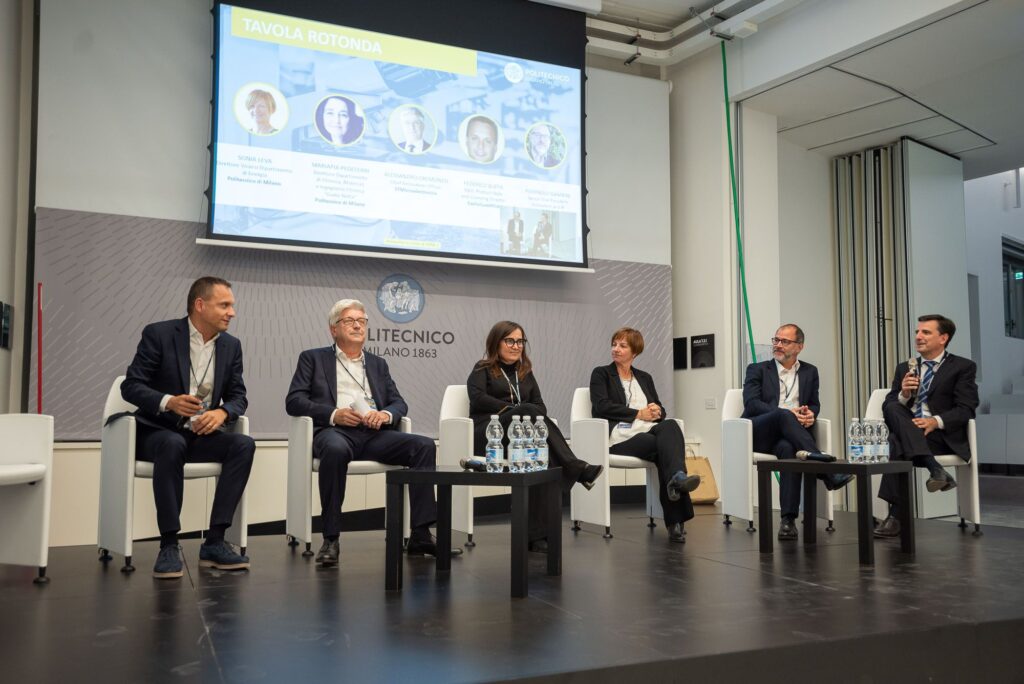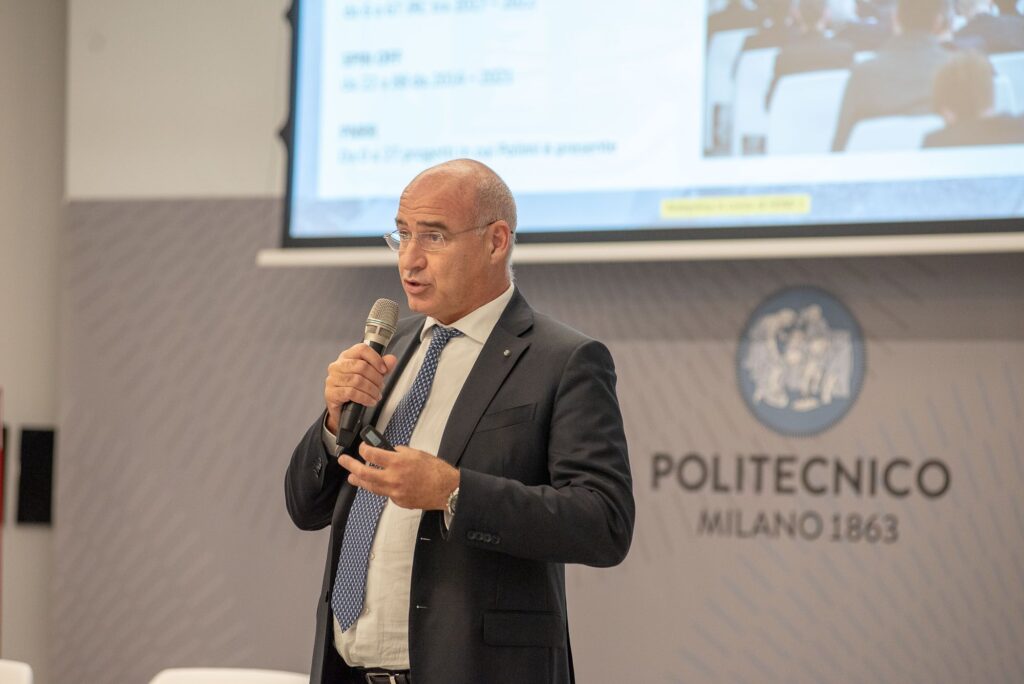12 October, Politecnico di Milano – Daniele Rocchi, direttore della scuola di dottorato e delegato del rettore per i rapporti con le imprese, apre la seconda edizione del JRP Annual Meeting, l’incontro annuale che dà conto dei risultati raggiunti grazie agli accordi siglati dal Politecnico di Milano e dalle aziende partner dell’Ateneo.
Rocchi spoke to an audience made up of the decision makers of Italian industry, illustrating in detail "what companies can do together with the Politecnico": research, innovation, training, placement. The speech particularly focused on the first 3, expressed in the 190 framework agreements between the Poli and companies active in 2022. "There is great value here", he said, referring to the network of research partnerships involving the Politecnico, "a network whose potential has yet to be explored". Rocchi’s is an invitation towards collaboration and sharing:
"We are living in times of great transformation in which innovation and technological development will play a very important role and will have a strong impact on society and on all of our lives. Certain challenges can only be faced together, trying to anticipate the lines for development in order to prepare ourselves adequately in terms of innovation, research and human capital".

Of the 190 businesses that work with the Poli, 67 of them have signed special agreements to establish joint research centres. How do they work? "Normally," Rocchi explains, "the companies come to the university with a technological problem. Our departments find the solution and it all ends there.
If instead the company is open to dialogue, we try to propose sharing a long-term project. La formula dei JRP aiuta a systematise the strategic objectives of the companies with those of the Politecnico: training of specialised personnel, basic research as well as industrial research and innovative projects that have short-term application, with a considerable economic impact for the companies. Ad oggi, gli accordi JRP generano un portfolio di circa 200 milioni di euro , which fund research groups on topics of interest for both the Politecnico and its partners.

The ‘hottest’ topics for the partner companies include the energy transition, mobility and smart manufacturing technologies, high performance computing and telecommunications, the New Space era and cyber security. The agreements provide for investments in infrastructure (such as laboratories and equipment), comprehensive research and training. In the last three years, for example, 170 patents have been filed in co-ownership with partner companies and master’s degrees and training courses have been launched at the Poli for R&D personnel to transfer new skills and ideas to the companies.
"But above all," Rocchi highlights, "having this active and effective network for many years means that we are ready to seize the opportunities offered by the PNNRWhen the Ministry of University and Research started announcing calls for funds linked to the National Recovery and Resilience Plan (PNRR), it found here a network of stakeholders ready and organised to make the best use of resources, accustomed to supply chain collaboration, with objectives already shared and already in line with those established by the European Commission".
One example is the enhancement of the PhD programme, a strong element of technology transfer in which the Politecnico believes strongly. For several years now, the university has been experimenting with co-financing PhDs in industry to carry out high-level applied research and create human resources that match the areas important to companies that want to innovate.
"Over the last 5 years, we have increasingly invested in young researchers, bringing in around 500 new PhD students to the university each year. Our established practices and strategic projects of research with our partners have enabled us to access PNRR funds to take on 211 additional researchers".

Mission 4 of the PNRR aims to boost the development of a knowledge-intensive, competitive and resilient economystarting by identifying the critical issues in our education, training and research system. The industrial vocation of the Politecnico, which has always enjoyed a symbiotic relationship with the Italian industrial sector, has been instrumental in accessing and implementing successfully these resources. Read about it in MAP 11, coming out in December.
You can explore this topic further in the next issue of MAP. Become a member to receive it.